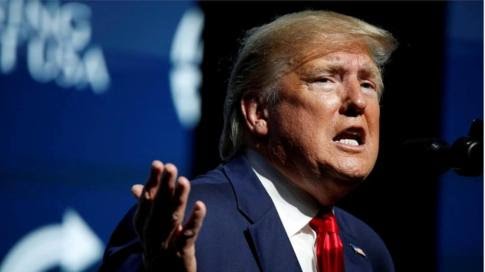
For Americans thinking of traveling to Iraq without the protection of U.S. Marines, the government’s advice is blunt: Plan your funeral before you leave.
“Draft a will and designate appropriate insurance beneficiaries and/or power of attorney,” the State Department advised on New Year’s Day. “Discuss a plan with loved ones regarding care/custody of children, pets, property, belongings, non-liquid assets (collections, artwork, etc.), funeral wishes, etc.”
Americans should avoid the country entirely, the department warned. “Do not travel to Iraq due to terrorism, kidnapping, and armed conflict.”
American citizens in Iraq are at high risk for violence and kidnapping, the warning said: “Numerous terrorist and insurgent groups are active in Iraq and regularly attack both Iraqi security forces and civilians. Anti-U.S. sectarian militias may also threaten U.S. citizens and Western companies throughout Iraq. Attacks by improvised explosive devices (IEDs) occur in many areas of the country, including Baghdad.”
The warning is a renewed posting of a “do not travel” bulletin that was issued in May amid intelligence reports that Iranian proxies planned to target Americans in retaliation for the renewal of U.S. sanctions. The sanctions were imposed after President Trump withdrew from the 2015 Iran nuclear deal. The security situation in Iraq worsened over the last week, after an Iranian-controlled militia killed an American contractor and wounded several U.S. troops by firing rockets at an Iraqi military base. Trump authorized airstrikes in response that killed roughly two dozen fighters, which led quickly to a retaliatory move by the militia.
Amid the violence, private citizens sometimes nevertheless travel to conflict zones — hence, the State Department travel warning.
“Faith-based groups — they’re probably at the highest risk right now,” Dale “Chip” McElhattan, a former director of hostage affairs at the U.S. Embassy in Baghdad, told the Washington Examiner.
The private organizations don’t have the support provided to U.S. government officials, such as the skeleton crew of State Department employees who have worked at the embassy since Secretary of State Mike Pompeo withdrew nonemergency personnel from Baghdad in May.
Charity organizations and other nonprofit groups in the country need to take precautions, said McElhattan, who worries that an overconfident activist might “go decide to meet somebody in a place they’re not familiar with” and come to harm.
“Everyone needs to take a look at [their protective measures] in the new year,” McElhattan urged. “It is essential for their personnel recovery programs that they take a look now, because the playing field has changed.”
*story by The Washington Examiner